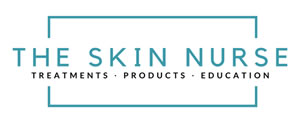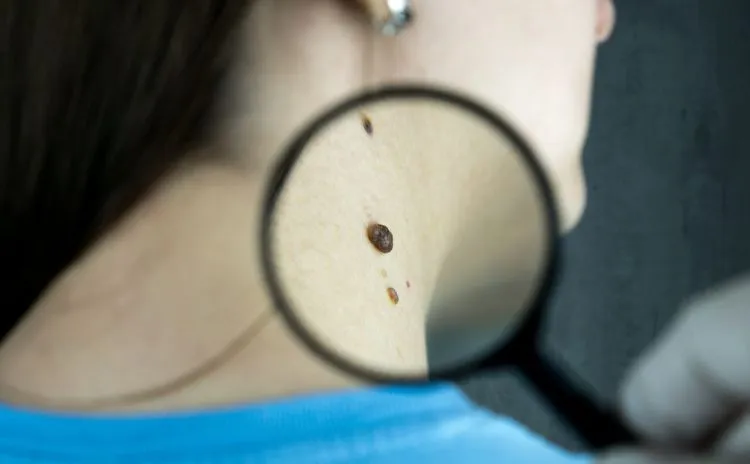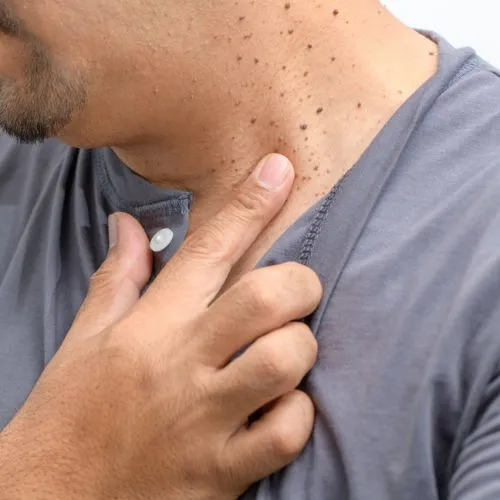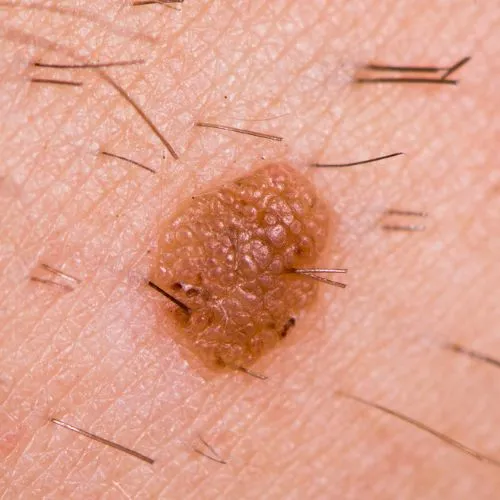Mole and skin screening by a qualified dermatologist can mean early detection and skin cancer prevention.
As a qualified and experienced dermatology nurse I can quickly assess moles and skin lesions and decide if they are benign or suspicious. As this service is unavailable on the NHS and many of my clients can’t get in to see their GP’s about worrying lesions, I wanted to offer this service to help – It is vital for us to keep a check on our skin and take steps to prevent skin cancer and unnecessary skin damage.
Discover how my mole and skin screenings can help you prioritise your skin health.
Why Get a Mole and Skin Screening?
- Early Detection of Skin Cancer: Regular mole screenings are crucial for detecting skin cancer at its earliest stages. I will meticulously examine your moles, identifying any potential signs of skin cancer. Early detection significantly increases treatment success rates and improves prognosis.
- Professional and Thorough Examinations: I have extensive expertise in mole screening and skin cancer detection with dermoscopy. I use advanced techniques and equipment to conduct comprehensive examinations, ensuring that no suspicious mole goes unnoticed.
- Education on Skin Cancer Prevention: In addition to the screening, I will prioritise your education on skin cancer prevention and provide you with valuable insights on sun protection, self-examination techniques, and lifestyle habits that promote healthy skin.
The Mole Screening Process
During your mole screening appointment here with me – The Skin Nurse, I will conduct a thorough examination of your skin and moles. The process typically includes:
- Patient History: I will send you a short pre-screening questionnaire to complete. We will discuss your medical history, including any previous skin conditions, sun exposure habits, or family history of skin cancer. This information helps me assess your risk factors and personalise your screening.
- Visual Examination: I will carefully examine your skin and moles using a dermatoscope, a specialised tool that provides a magnified view into the skin. Suspicious moles or areas will be documented for further evaluation via your GP or health insurance.
- Digital Imaging: In some cases, I may use digital imaging to capture detailed images of specific moles or areas of concern. These images serve as a reference point for future screenings, allowing us to monitor any changes over time accurately.
- Evaluation and Recommendation: Following the examination, I will evaluate the findings and discuss them with you. If any suspicious moles are identified, I may recommend a biopsy or further testing for definitive diagnosis via your GP or health insurance.
Skin Cancer Prevention Education
As part of my commitment to skin health, I will provide you with comprehensive guidance on skin cancer prevention strategies. This may include:
- Sun Protection: Guidance on proper sun protection measures, such as using sunscreen, wearing protective clothing, and seeking shade during peak sun hours.
- Self-Examination: Step-by-step instructions on how to perform regular self-examinations to monitor your moles and identify any changes or new growths.
- Healthy Habits: Advice on maintaining a healthy lifestyle, including nutrition, hydration, and stress management, which contribute to overall skin health.
Schedule Your Mole and Skin Screening Today, get in touch with me here louise@theskinnurse.co.uk
What is Skin Cancer?
Skin cancer is a type of cancer that develops when there are abnormal changes in the cells of the skin. It is primarily caused by excessive exposure to ultraviolet (UV) radiation from the sun or tanning beds. The most common types of skin cancer include basal cell carcinoma, squamous cell carcinoma, and melanoma. Early detection and treatment are crucial in preventing its progression. Risk factors for skin cancer include fair skin, a history of sunburns, family history, and a weakened immune system. Protecting the skin from UV radiation, such as using sunscreen, wearing protective clothing, and avoiding excessive sun exposure, is essential in reducing the risk of developing skin cancer. Regular self-examinations and routine mole and skin screening with a dermatologist such as The Skin Nurse can help in identifying any suspicious skin changes and ensuring timely intervention.
Don’t wait to prioritize your skin health. Contact Louise today to schedule your mole and skin screening appointment.



